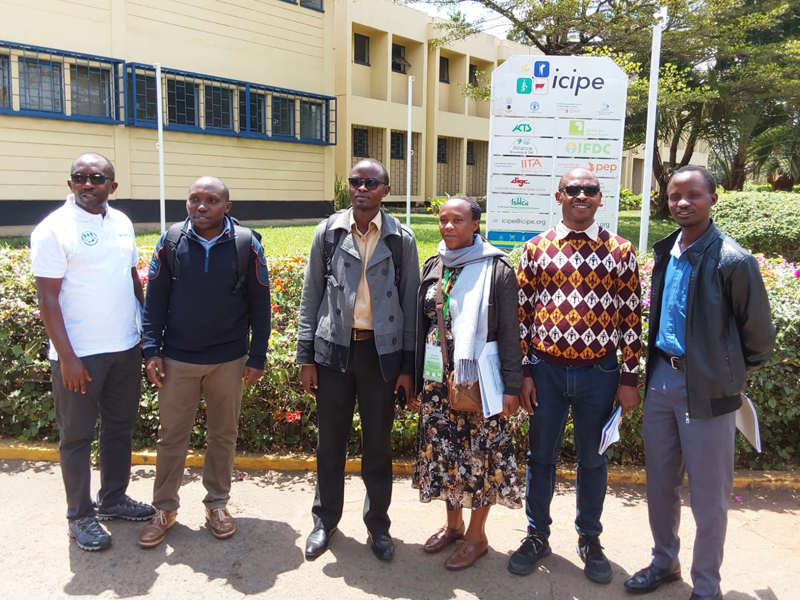
As part of a USAID-funded potato projects in Rwanda, our partners expressed a need to generate quality early potato seed. To meet this need, six potato experts from Rwanda Agriculture and Animal Resources Development Board (RAB) and Rwanda Inspectorate, Competition and Consumer Protection Authority (RICA), Rwanda, attended a 5-day intensive training at Centre of Phytosanitary Excellence (COPE), Kenya Plant Health Inspectorate Service (KEPHIS), Nairobi, Kenya between 7th – 11th August 2023.
The team included Theophile Ndacyayisenga, a potato breeder-RAB, Anastase Nduwayezu, a potato pathologist-RAB, and four lab technicians at RAB and RICA- Edmond Gasumba, Fidela Nikuze, Jonathan Nayigiziki, and Jacques Ndayambaje.
The team also received one-day training at NemAfrica lab at ICIPE and Kevian Ltd /Hanna Roses in Thika. They also had the privilege to visit the International Potato Center (CIP) Biotechnology/Genomic facility to see and appreciate genetic engineering work on potatoes by CIP.
CIP, through the two USAID-funded potato projects implemented in Rwanda – Partnership for Seed Potato Technology Transfer in Africa (PASTTA2) and Accelerated Innovation Delivery Initiative in The Great Lakes Region (AID-I GLR) organized all the trainings/visits. The overall objective of the training program was to expose and share experiences with the two project partners- RAB and RICA- on producing quality early seed generation (EGS) for potatoes. This was a demand-driven activity, having been prioritized by the two partners during the project start-up meeting early in the year.
At COPE/KEPHIS, the team gained new skills in virus cleaning and indexing, virus elimination techniques by Thermotherapy and Meristem, initiation of explants to TC, Meristem extraction/culture, and DAS-ELISA protocols. They also gained skills in Loop-Mediated Isothermal Amplification (LAMP) for virus detection and bacterial wilt as well as Potato Cyst Nematode (PCN) extraction and identification.
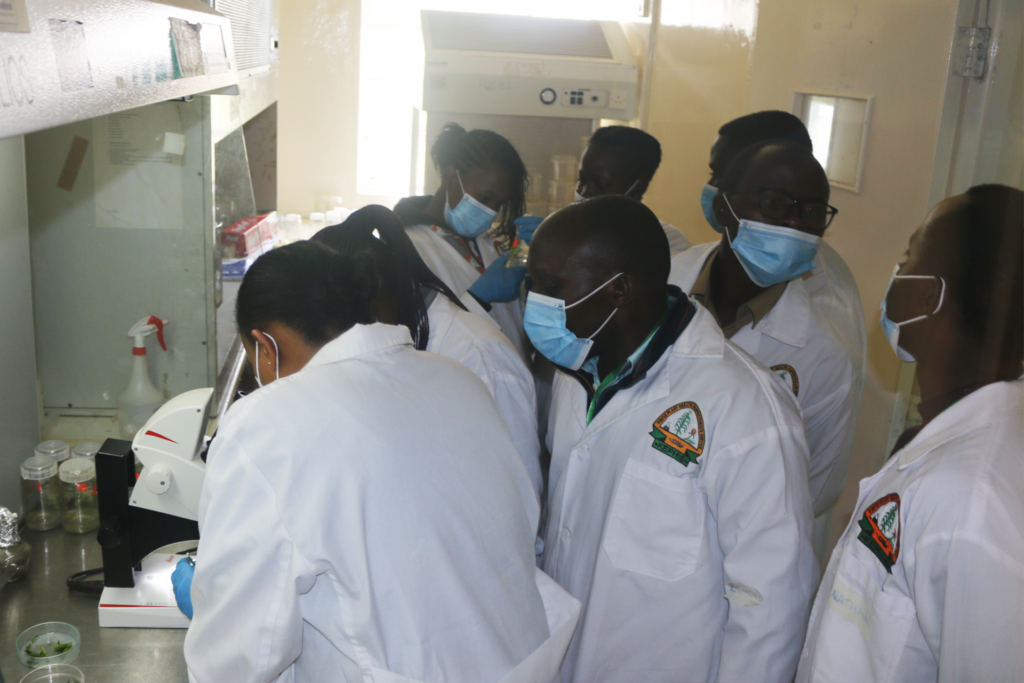
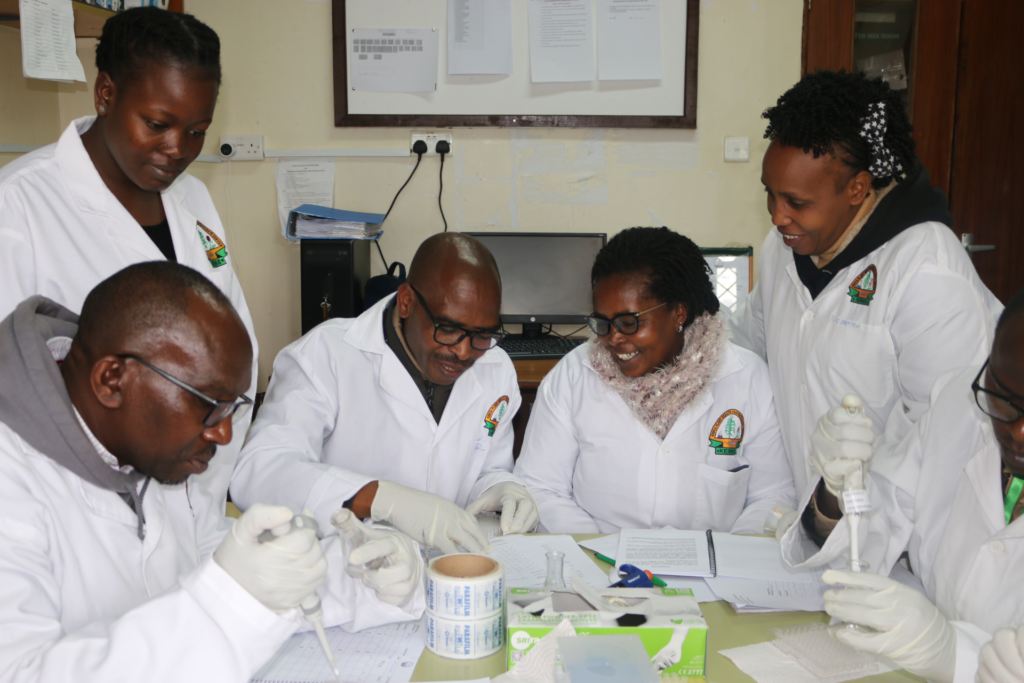
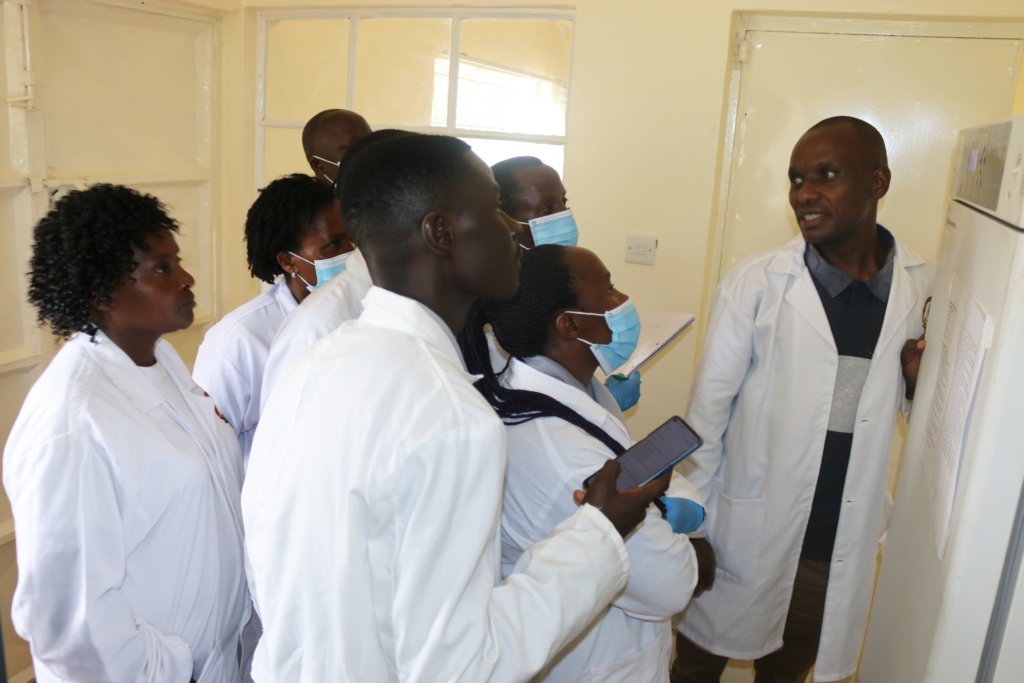
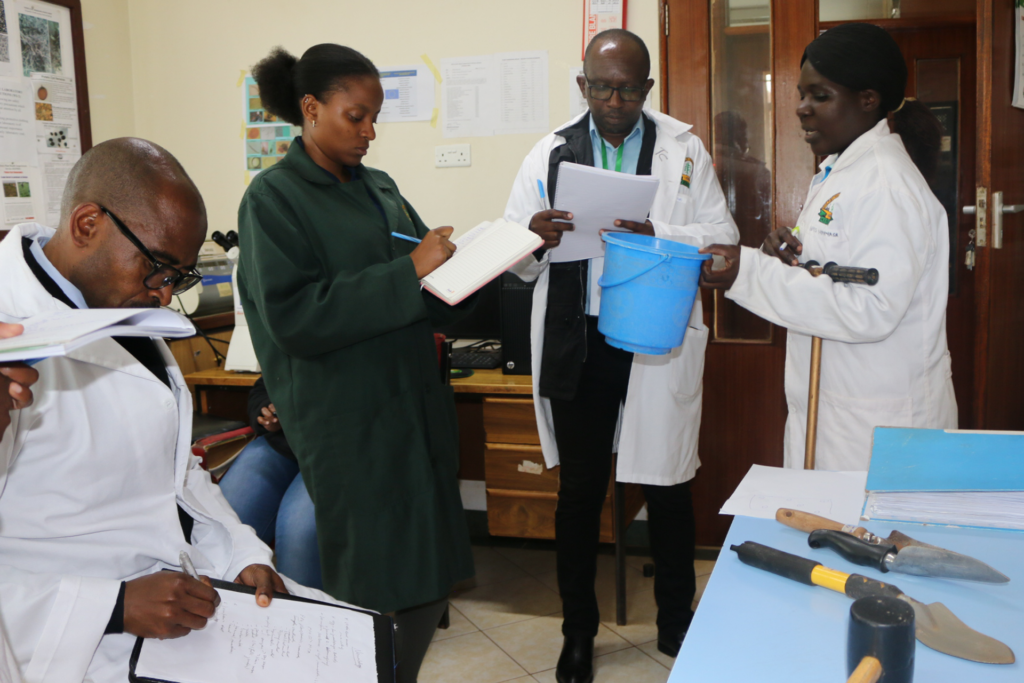
Practical session at COPE/KEPHIS: at the TC Lab (top) and at the virology Lab, (Botton-Right). At nematology Lab – (bottom -Left)
At the end of the training, Dr Dinah Borus, the project leader at CIP thanked all the trainers at COPE/KEPHIS for sharing their knowledge and techniques. ‘KEPHIS and CIP partnership founded on a shared path of quality EGS for potato and sweetpotato continue to grow stronger’. Dinah concluded.
While awarding the Certificate of Completion to the trainees, Hellen Mwarey, KEPHIS Senior Inspector, challenged them to put all what they learned into practice and to jointly provide phytosanitary and biosecurity services to protect Africa from crop pests and diseases. “KEPHIS, RICA, and RAB are all joined at the hip concerning phytosanitary and biosecurity matters to protect our borders’ Hellen concluded her closing remarks.
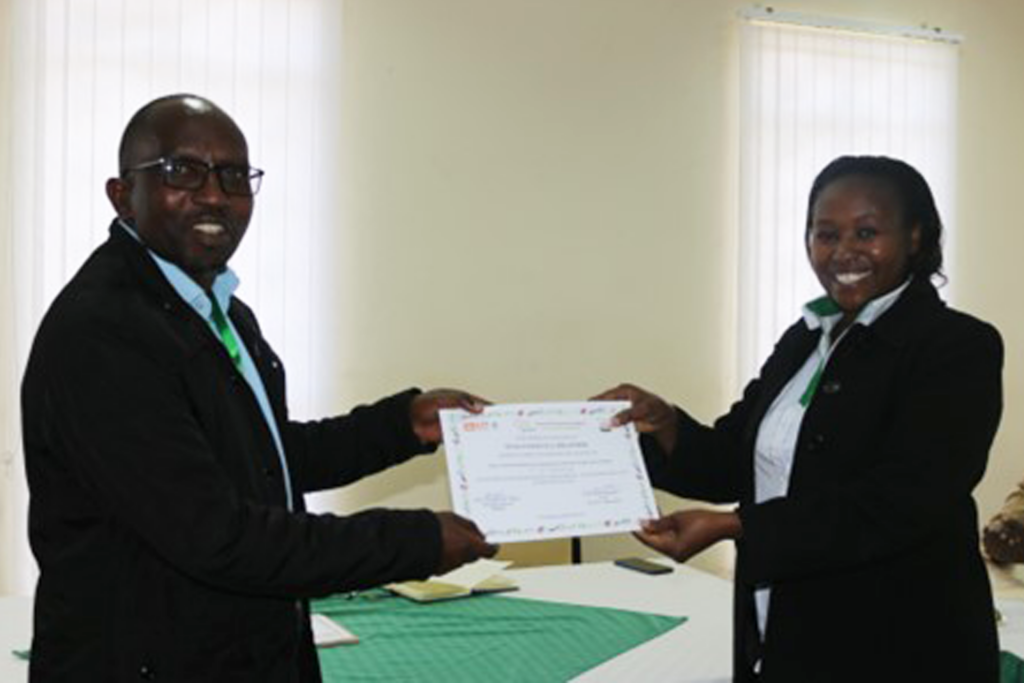
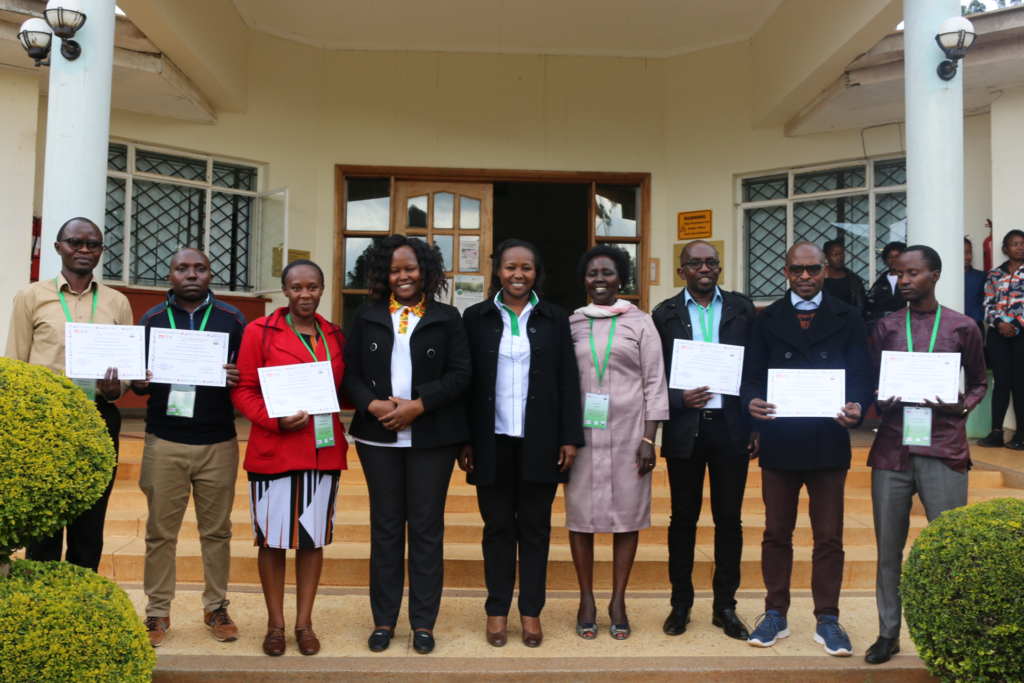
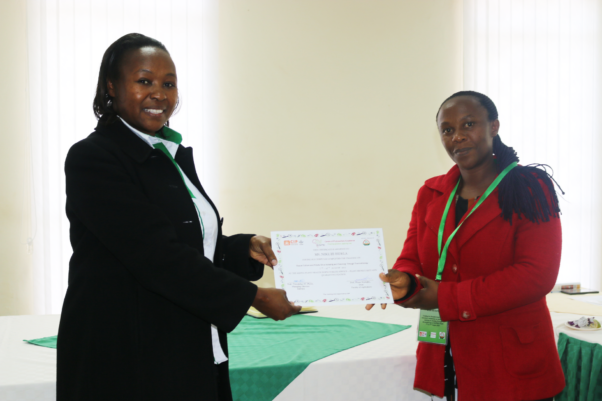
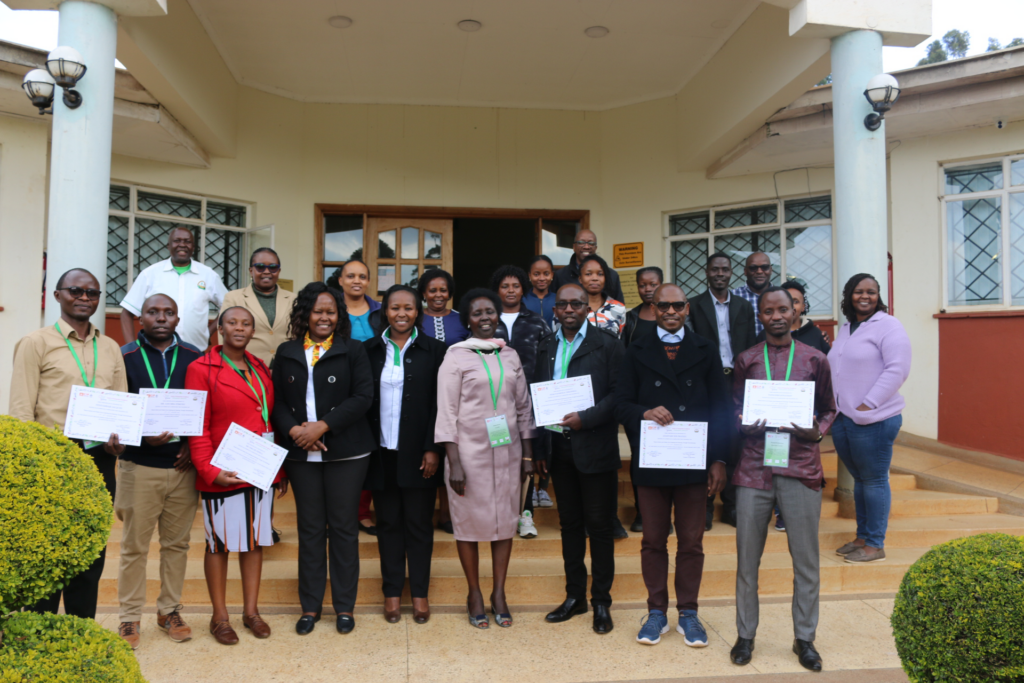
Closing ceremony and awarding of certificate of completion at COPE /KEPHIS. Top-Theophile and Fidela (in red coat) receiving their Certificate from Hellen Mwarey, Inspector KEPHIS Headquarters. Bottom: Group photo of Rwanda team and the course facilitators at COPE/KEPHIS
On Monday, 14th August 2023, the team visited NemAfrica lab, ICIPE campus, where they were received by a vibrant team led by Dr. Danny Coyne, Soil Health Scientist and in-charge of NemAfrica lab. Here they received insightful information on PCN and a demonstration of procedure/protocol for extracting PCN from a soil sample as well as on extracting Rootnode nematodes. Screening of PCN as well biological control measures for PCN, including production of healthy seedlings using soilless media.
The practical-oriented knowledge-sharing sessions on the same date at Kevian Ltd/Hanna Roses equipped the team with the much-needed knowledge and skills on rooted apical cutting (RAC) technology. They also had the opportunity to learn about large-scale cut-flower production in Kenya.
On Tuesday, 15th August 2023, the team received practical sessions on LAMP Assay diagnostics from Elly Atieno at CIP while Dr. Eric Magembe, Molecular Biologist at CIP, took them on a tour of the Biotechnology/Genomic facility located at the Biosciences eastern and central Africa (BecA- ILRI Hub) to see and appreciate genetic engineering work carried out by CIP on potato.
Before traveling back to Rwanda, the team thanked all their trainers and their host and promised to apply their newly acquired diagnostics skills to roll out PCN activities and to introduce RAC in Rwanda. On behalf of the team, Theophile summarized their experience in Kenya as follows:
“We are so grateful to CIP, KEPHIS, ICIPE NemAfrica lab, and Kevian/Hanna Roses for sharing their expert knowledge and skills with us during the training/visit. We gained so much from the practical-oriented training and demonstrations during the visits. We appreciate all the methodologies, practices, protocols, and skills that we learned during the training/visit. From potato virus cleaning and indexing to initiation of explants to TC, thermotherapy, meristem extraction/culture, NCM-ELISA, DAS-ELISA, TAS-ELISA, PCN identification and extraction, screening and biological control of PCN, rooted apical cutting technology to LAMP ASSAY theory and practical’s session. The tour to CIP Biotechnology/genomic facility enabled us to see and appreciate the ongoing genetic engineering work on potato”
“I’m confident the training will have an impact on the production of quality EGS seed potatoes at RAB and equally an impact on seed certification protocols at RICA. I am sure we shall have some cross-pollination of ideas/innovations from the visit”. Dinah who coordinated the training/visit concluded.
Prepared by Dr Dinah Borus, CIP, Nairobi, Kenya
